March 2019
-

It’s taken almost a year, but we have completed our look at the Georgia Climate Project Roadmap. For those of you who joined us late, this is a list of 40 of the most important research questions (determined by a working group of about 60 Georgia scientists) facing scientists who are looking into how climate…
Posted in: Climate science -

While this blog is mainly about climate and its impacts on agriculture, sometimes the news gets in the way and we look a little more broadly about food. I thought this article from Bloomberg about what folks in the UK would eat if Brexit held up imports. No daily tea? It made me think about…
Posted in: Climate and Ag in the news -
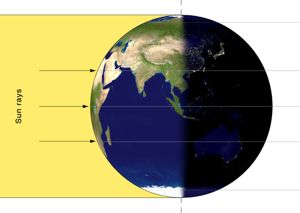
Earlier this week, the astronomical season changed from winter to spring as we passed the vernal equinox. Of course, climatological spring started on March 1. If you are interested in learning more about the equinox, then EarthSky has a great discussion here. Happy spring!
-
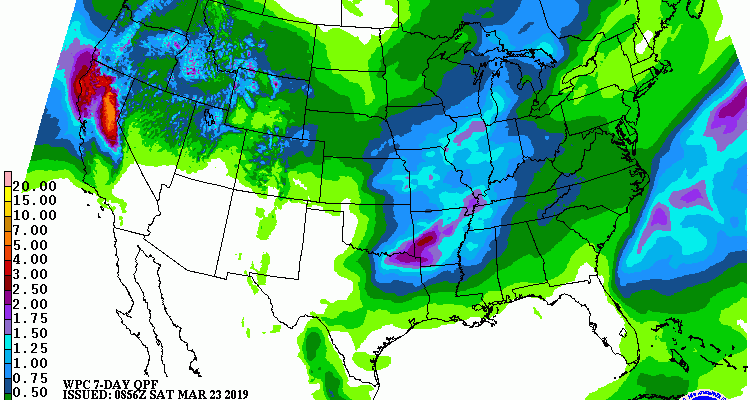
The latest weekly QPF map shows fairly low chances of rain for the next week. The highest chances will come this weekend, with practically no chance of rain for the bulk of the week. Lots of sun is OK by me! However, the dry conditions could expand the areas of moderate drought that appeared in…
Posted in: Climate outlooks -
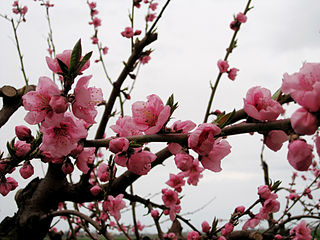
The Packer published an interesting story this week about problems that Florida peach producers are having in peach production. Because Florida is so warm, they need to use special varieties of peaches that have low chill-hour requirements compared to peaches in Georgia and South and North Carolina. But the warm conditions over winter the last…
-
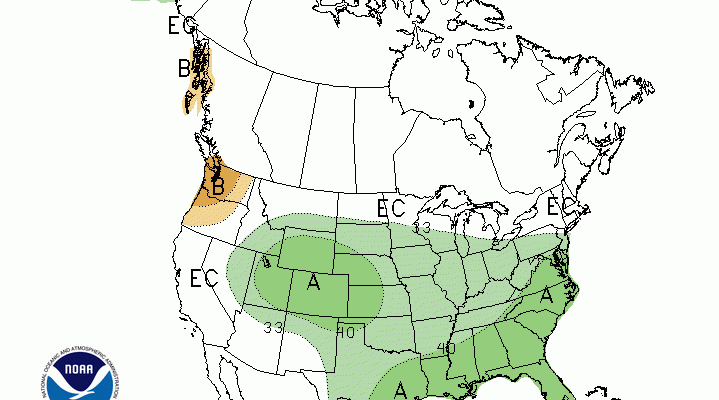
NOAA released their latest seasonal outlook this week. It shows that the widespread flooding that is affecting parts of the US is likely to continue through spring, which could potentially be devastating for farmers. You can read about the Spring Flood Outlook here. The Pew Trust has an interesting story about spring floods and the…
-
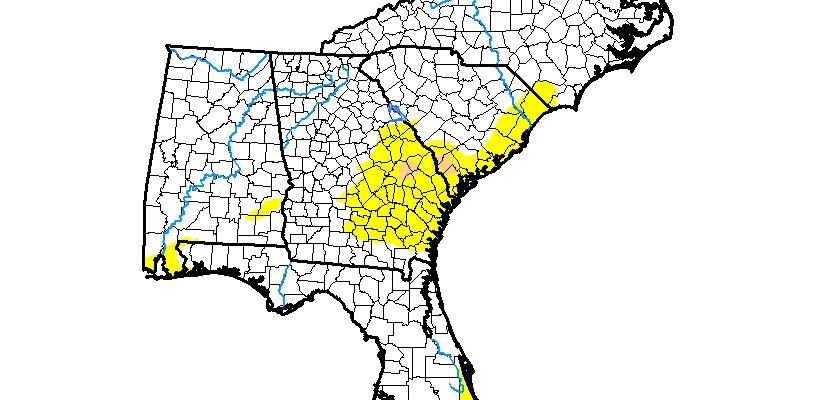
The latest Drought Monitor, released this morning, show that two small areas of moderate (D1) drought have been introduced to southern South Carolina and east central Georgia. These are in response to the dry conditions in those regions, which have been largely bypassed by the heavy rains that have hit more northern parts of those…
Posted in: Drought